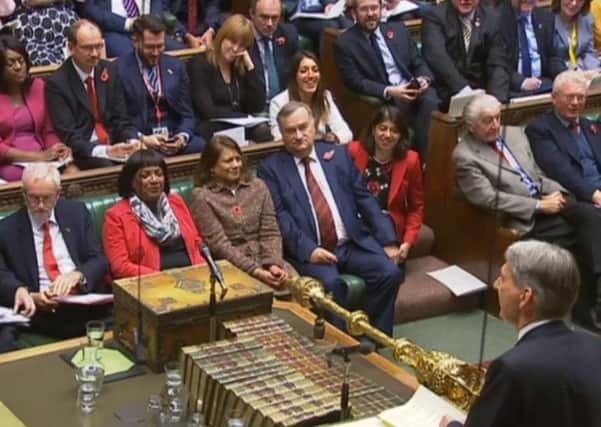John Grogan: BBC Parliament's escape from the axe offers chance for fresh approach


Two centuries later the debate had moved on as to whether television should be allowed into the debating chamber of the Commons. My father’s political hero – and one of three Prime Ministers to hail from God’s Own County – Harold Wilson was a sceptic.
Cabinet Minister Richard Crossman records in his diaries that Wilson asked him whether the BBC would be able to cut the video tape up, take a bit of speech and introduce it into a magazine programme. Crossman replied, “Certainly,” and Wilson concluded that could not possibly be allowed!
Advertisement
Hide AdAdvertisement
Hide AdBut Conservative bankbencher Brian Batsford was much more enthusiastic. “The introduction of the cameras will bridge the gulf which has widened so much between Parliament and the people,” he declared.
Nevertheless, on my 13th birthday – February 24 1974 – the House of Commons rejected television coverage while agreeing to the introduction of radio. I recall in 1979 as a sixth-former listening enthralled as the Leader of the House and great Parliamentary orator Michael Foot summed up for the Government just before the 10pm vote on a motion of no confidence.
Although the House of Lords allowed the cameras to take their place in 1983 it was not until 1988 and after no fewer than 11 debates that the Commons decided to take the plunge. American cable companies were all the rage in the 1990s and the United Artists Cable Company ran the Parliamentary Channel until 1998. Facing mounting losses they were eager to exit and, after protracted negotiations with the House of Commons, BBC Parliament was born.
It is true to say that the channel has never toppped the ratings but can still boast a monthly reach exceeding two million viewers. The forthcoming debate ending with a ‘meaningful vote’ on any Brexit deal is likely to be good for business.
Advertisement
Hide AdAdvertisement
Hide AdMost viewers are over 60 but there again the ‘young retired’ make up a good proportion of the activists of all our political parties.
Almost unnoticed by the general public, BBC Parliament has fought and won a battle over the summer to continue to exist in its current form.
In July it emerged that as part of a package of cuts it was intended that the channel would be reduced to just broadcasting the live feed of debates. All additional and explanatory programming would go – even the captions on the screen.
Over the years a portfolio of programming has built up including an A to Z of Parliament, a Political Book programme and anniversary replays of General Election coverage. The savings would have amounted to about £600,000 of the £550m the Corporation has to save by 2021/2022.
Advertisement
Hide AdAdvertisement
Hide AdFans of the BBC comedy W1A which pokes gentle fun at the management of our national public broadcaster will recognise what happened next.
BBC executives had not factored in that BBC Director General Tony Hall was, before the summer recess, due to appear at the Select Committee for Culture, Media and Sport.
When pressed by the chair of the committee on the issue of BBC Parliament he said: “I want the edited programmes to continue. Let me just say we are constantly reviewing what we do. Could we do this better? Could we do it more effectively? But do not read into that necessarily something that we intend to do.”
Shortly thereafter a BBC press release confirmed the U-turn with the statement, “As the director general has said, certain programming on BBC Parliament will continue as before”.
Advertisement
Hide AdAdvertisement
Hide AdThe challenge now is to plan how the channel could develop over the next decade. On the Parliamentary website there are sometimes up to 20 live streams of Select Committees available. Is it possible to imagine that using the latest digital technology the BBC could do for Parliamentary coverage what they have done for the Olympics or Wimbledon? As Tony Hall himself told the Select Committee: “For example, could we… work with the parliamentary website to allow people to search more easily by topic, to have notifications when things are being brought up in the House?’
Where would the money come from? Most of the expenses of BBC Parliament are transmission costs of nearly £7m. At some stage all televisions could be connected to the internet and there could be a switchover as there was a digital switchover.
Parliament too may have an interest in ceasing charging the BBC for access to recordings. As Vice Chair of the All Party Parliamentary BBC Group I hope to organise a seminar in the New Year with the interested parties to discuss what might be possible.
John Grogan MP is the Labour MP for Keighley and vice chair of the All Party Parliamentary BBC Group